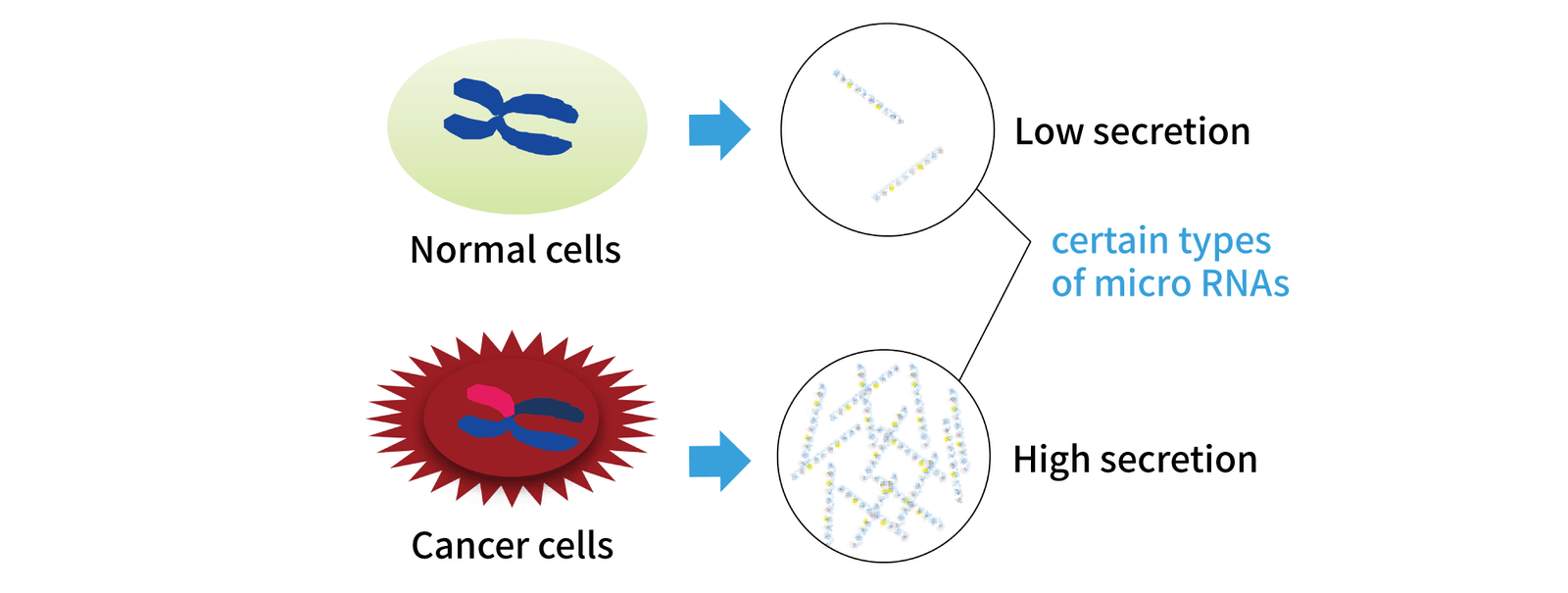
Photo Credit: Toshiba
Advances in treatment, early detection and treatment of cancer greatly improves survival rates of patients. Toshiba's microRNA detection technologies contribute to cancer detection at an ultra-early stage with accuracy, speed and cost efficiency by capturing very small amounts of microRNAs secreted by cancer cells in the blood.
RNA is a single chain structure composed of 20 bases, which tends to react more efficiently compared with DNA. Among several types of RNAs, microRNAs are thought to control protein synthesis and others, and certain types of microRNAs are secreted from cancer cells into blood. Taking advantage of this property, Toshiba's microRNA detection technology is able to determine the presence or absence of cancer.
This technology brings the possibility to test with a small amount of blood collected during a health checkup and to detect cancers at an ultra-early stage. It is also attractive to be able to test a large number of people simultaneously, as this technology enables results in 2 hours per test. 13 types of cancers are targeted at this time, and if positive, additional tests would be performed to identify which type of cancer it is.
Toshiba aims to introduce microRNA detection technology in various types of medical examinations in order to increase the availability for more people to use it under the health insurance. In addition to detecting cancer, the global development to the wide range of medical treatment including detections of diseases other than cancer is also promising.
The progress of Toshiba's research and development is still ongoing. Researchers and engineers are looking for a better way, and the technologies cultivated and inherited over years will turn on the promise of a new day in healthcare. Toshiba Group will continue to focus on healthcare businesses including precision medicine, which features "ultra-early detection" and "personalized treatment" as its core.




